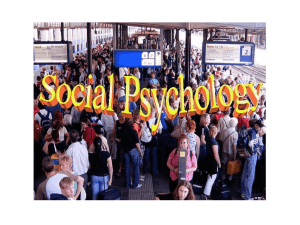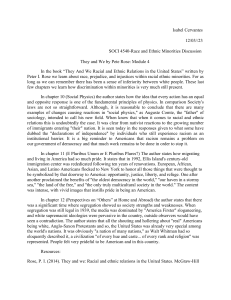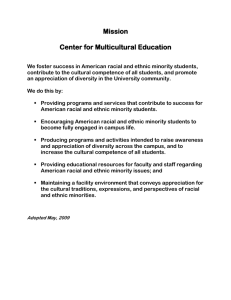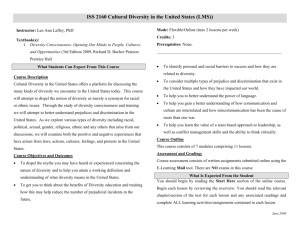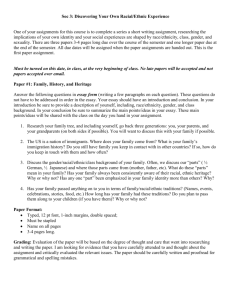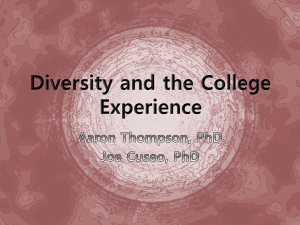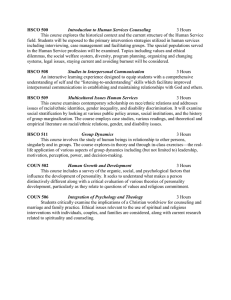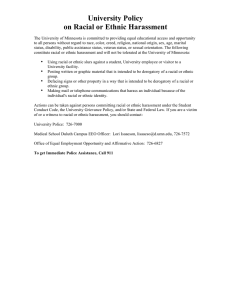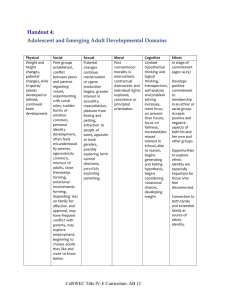ANTY122: Assessment Examples for Group S Learning Goals
advertisement
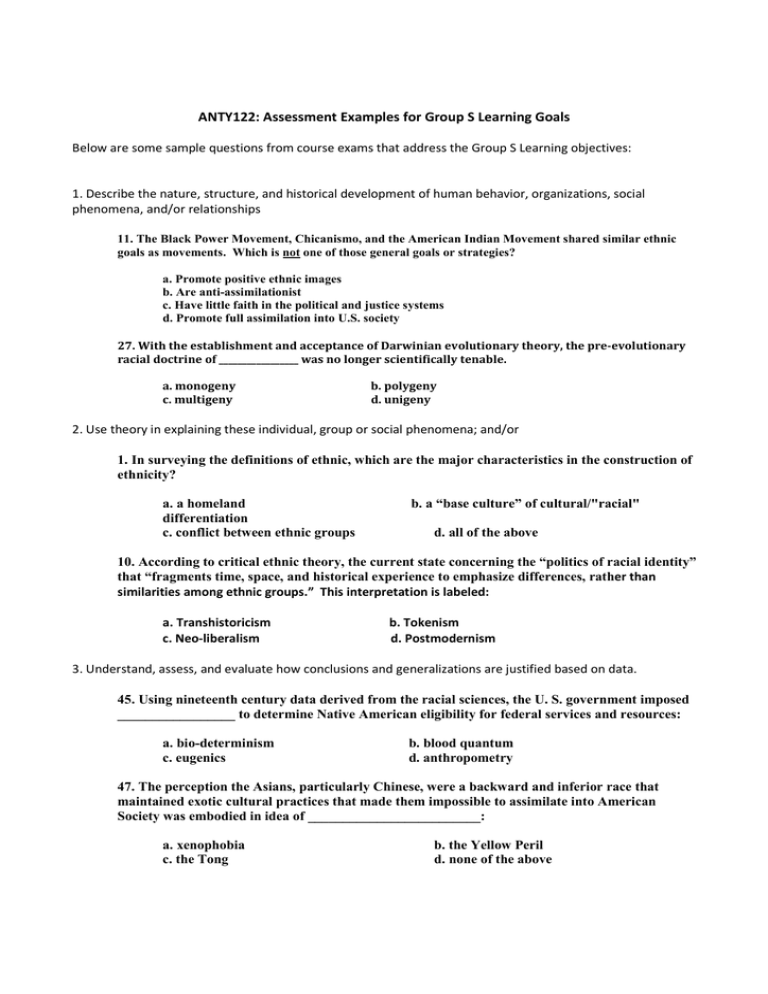
ANTY122: Assessment Examples for Group S Learning Goals Below are some sample questions from course exams that address the Group S Learning objectives: 1. Describe the nature, structure, and historical development of human behavior, organizations, social phenomena, and/or relationships 11. The Black Power Movement, Chicanismo, and the American Indian Movement shared similar ethnic goals as movements. Which is not one of those general goals or strategies? a. Promote positive ethnic images b. Are anti-assimilationist c. Have little faith in the political and justice systems d. Promote full assimilation into U.S. society 27. With the establishment and acceptance of Darwinian evolutionary theory, the pre-evolutionary racial doctrine of _________________ was no longer scientifically tenable. a. monogeny c. multigeny b. polygeny d. unigeny 2. Use theory in explaining these individual, group or social phenomena; and/or 1. In surveying the definitions of ethnic, which are the major characteristics in the construction of ethnicity? a. a homeland differentiation c. conflict between ethnic groups b. a “base culture” of cultural/"racial" d. all of the above 10. According to critical ethnic theory, the current state concerning the “politics of racial identity” that “fragments time, space, and historical experience to emphasize differences, rather than similarities among ethnic groups.” This interpretation is labeled: a. Transhistoricism c. Neo-liberalism b. Tokenism d. Postmodernism 3. Understand, assess, and evaluate how conclusions and generalizations are justified based on data. 45. Using nineteenth century data derived from the racial sciences, the U. S. government imposed _________________ to determine Native American eligibility for federal services and resources: a. bio-determinism c. eugenics b. blood quantum d. anthropometry 47. The perception the Asians, particularly Chinese, were a backward and inferior race that maintained exotic cultural practices that made them impossible to assimilate into American Society was embodied in idea of _________________________: a. xenophobia c. the Tong b. the Yellow Peril d. none of the above
